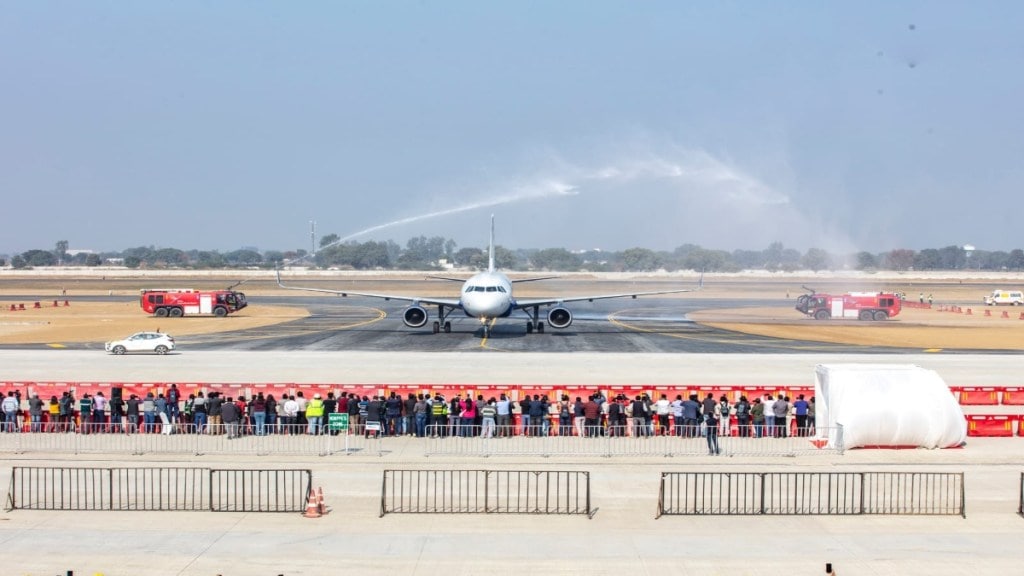The Jewar Airport or the Noida International Airport (NIA) project, a flagship infrastructure initiative, is nearing completion and is set to commence operations by April 2025, Union Aviation Minister Ram Mohan Naidu announced on Wednesday. The airport is poised to enhance connectivity for the National Capital Region (NCR) and western Uttar Pradesh, complementing Delhi’s Indira Gandhi International Airport (IGIA).
Successful Validation Flight Marks Milestone
Noida Airport on December 9 completed its validation flight, a key step in the aerodrome licensing process. The flight, conducted by IndiGo, the launch carrier, verified the airport’s approach procedures and confirmed the functionality of its navigational aids and air traffic control systems. This achievement highlights NIA’s compliance with the stringent safety and operational standards required for commercial operations. Following this, NIA will finalise its documentation for aerodrome certification and submit it to the Directorate General of Civil Aviation (DGCA).
This milestone follows the October calibration of the Instrument Landing System (ILS) and Precision Approach Path Indicator (PAPI) systems by the Airports Authority of India and successful RNP (Required Navigation Performance) simulator trials. Christoph Schnellmann, CEO of NIA, expressed pride in the achievement, emphasizing the airport’s readiness for its upcoming opening and its commitment to passenger safety and operational excellence.
Speaking about the project’s progress, Naidu said, “Jewar Airport’s validation flight was conducted successfully. Construction is also nearing completion, and we are working towards licensing it at the earliest.” He emphasised the need for an additional airport due to the growing demands of the rapidly expanding NCR region.
Initially, the airport will operate with a capacity of 12 million passengers annually, catering to the increasing aviation needs of Delhi and nearby areas.
Ambitious Plans for India’s Aviation Expansion
Naidu also outlined the government’s ambitious vision for airport expansion across India. “Currently, we have 158 airports. We plan to build 50 more in the next five years and nearly 200 over the next 20 years,” he revealed.
The Jewar Airport is seen as a model for such projects, with plans to replicate its systems and strategies at other airports.
Legislative Measures to Strengthen Aviation Security
Addressing recent security concerns, Naidu discussed legislative changes to curb aviation-related offences, including hoax calls. “We are introducing amendments to the Aircraft Security Rules and proposing changes to the SUASCA Act, which addresses civil aviation offences,” he said.
The amendments aim to expedite the process of placing offenders on no-fly lists and strengthening penalties for aviation-related crimes. “We are in the inter-ministerial consultation phase and expect to finalise these changes soon,” he added.
Strategic Importance of Jewar Airport
Jewar Airport’s location positions it as a crucial hub for both domestic and international travel, enhancing access for millions of passengers annually. Naidu underscored its strategic significance, noting, “The city has grown, and there’s immense potential for another airport. Jewar is a very viable and strategic location.”
With its initial phase nearing completion, Jewar Airport promises to alleviate pressure on IGIA, support regional economic growth, and improve travel convenience for millions in NCR and western Uttar Pradesh.
As India pushes forward with its aviation expansion plans, Jewar Airport stands as a testament to the country’s commitment to modernizing infrastructure and meeting the demands of a rapidly growing aviation sector.


